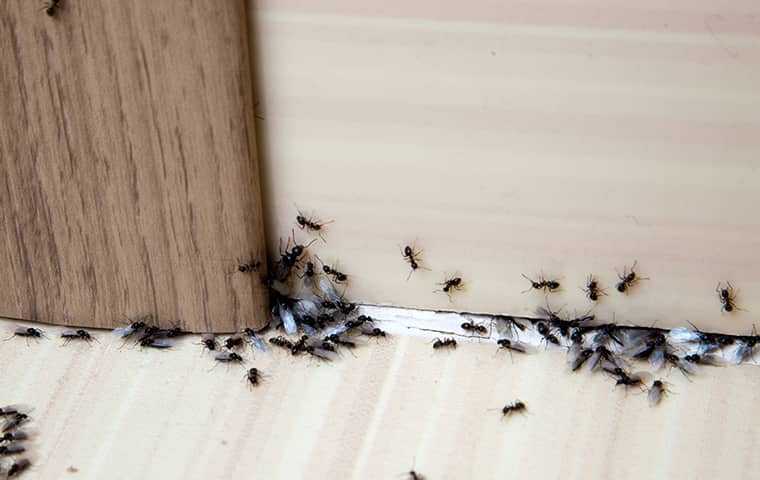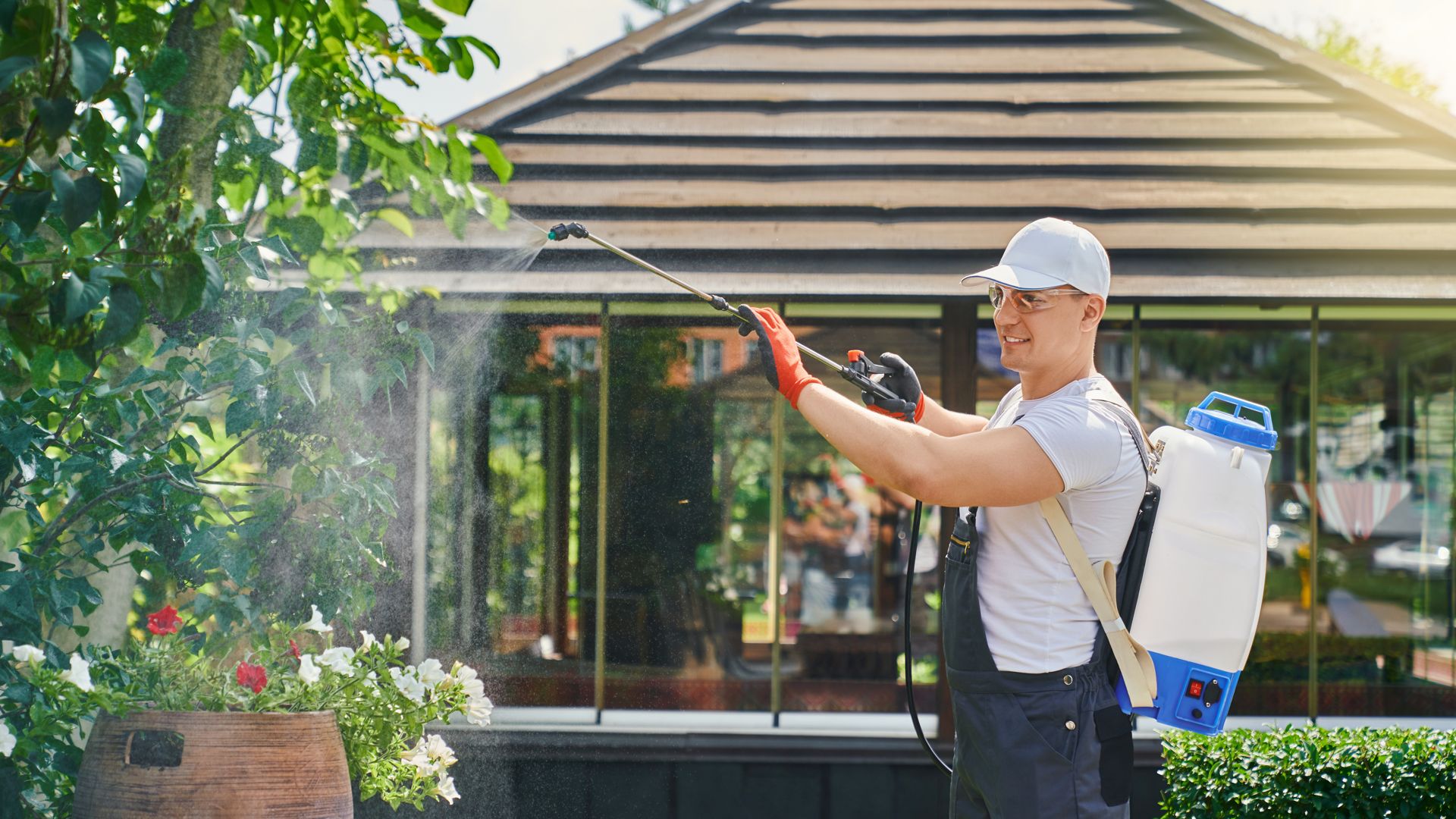
Say Good Riddance To Ants In Your Orange County Home

Most ants that get into your home are little, black, and plentiful. Have you noticed? The tiny size of an ant, along with its color, can help it blend in with building materials, which makes tracking ants difficult. When you see them appear over and over again, it can start to get frustrating. Perhaps you've already noticed. The frustration is compounded by the fact that most Orange County residents don't know how to get rid of ants in the house, even when they're able to follow their trails.
So, what can you do? Is there a way to say good riddance to ant problems for good? Join us today as we explore this question. We'll take a quick look at a few common ant species found in Orange County, how they cause trouble, how to get control of them, and how to keep them out once you've eliminated the ants in your home. We'll touch on everything you need to know about ant maintenance.
If you'd like to speak with a pest management professional and get fast answers to your ant problems, remember that The PEST Group provides advice, guidance, and service options for a wide range of pest control. We can help you find the right solution for you or schedulepest control services in Orange County.
Types Of Ants Common To The Area
When you see little black ants in your home, you might go to the internet and do a search. Do you know what you'll find? You'll learn about a species called Monomorium minimum. But it is only one of many little black (or dark brown) ants that can get into your home. That is the primary issue of DIY ant control. Identification is trickier than you might think, and you may apply the wrong ant control products and methods.
In Orange County, we have many species. Several are dark-colored ants that you might mistake as little black ants. Even a carpenter ant, which is big for an ant, looks little because ants are small insects. To help you with your ant identification, here is a quick list of common ants in our area:
- Little Black Ants
- Black Ants
- Acrobat Ants
- Argentine Ants
- Harvester Ants
- Odorous House Ants
- Pavement Ants
- Carpenter Ants
- Pharaoh Ants
- Crazy Ants
- Fire Ants
- Ghost Ants
- Velvety Tree Ants
- White-Footed Ants
- Big-Headed Ants
You can use this list to see if you can zero in on what kind of ants you're seeing. If you need help with identification, send us a picture from your phone. We can have one of our pest management professionals take a look.
Once you zero in on what ant species you have, you'll have the ability to learn about their unique behavior patterns, such as colony size, preferred foods, and associated risks, and also whether or not they have multiple queens or are prone to create indoor nests.
Ants In The Home Can Create Many Problems
We don't have to tell you that ants are a nuisance, but how bad are they really? What do ants do when they get into your home? It depends on the ant. All ants are considered a low-level health risk as they crawl in unsanitary areas, pick up germs, and spread them to interior surfaces and packaged food. Certain ants present a risk to property as they tunnel in wood. Some ants damage electronics and chew on wires. Some ants sting. No matter what ants do in your home, there is one thing you can count on: As they grow their numbers, the problem will grow. It is best to apply effective control measures early if you can.
The Best Way To Get Rid Of Ants In Your House
If you see ants crawling in your home, you may go to the internet in search of a solution. Even if you properly identify the ants you're attempting to control and use the right products, you can still get limited results because there are many challenges to ant pest control. You may place too much bait down. You may place bait in the wrong area. You may eliminate ants too quickly and cause the ant colony to split into several colonies. You may drive ants into another area or cause them to spread out into a larger area. We could go on, but you get the idea. So, what works best to get rid of ants? The best solution is a scientifically-driven results-based solution, such as what a certified pest control professional provides. When you contact The PEST Group for ant control in Orange County, here are some of the measures we take to address your issue.
- Perform an inspection.
- Consider food options that are bringing ants into the home.
- Identify where ants are getting into the home.
- Check for evidence of indoor colonies.
- Track the ant trails.
- Apply pest-proofing to block access.
- Select appropriate control products and administer them.
- When applying products, consider environmental conditions that present a threat to the efficacy of the products applied.
- Evaluate the success of the products by performing follow-up inspections.
- Use monitoring devices to track the overall progress of the multi-pronged treatment plan.
- Address exterior ant mounds as needed.
- Consider attractants near the home and alter conditions that promote ant activity.
- Apply a liquid treatment to the exterior of the home that will prevent ant entry.
- Spot treat areas in the yard to reduce protein food sources for ants.
- Remove spider webs to further reduce protein food sources.
- Apply spot treatments in landscaping to address the sugary food source left on your plants by aphids.
Ant pest control is a complicated process with many layers. When each layer is applied correctly, not only will it work to remove the ants in your home, but it will also prevent future ant infestations. Do you have to continue with routine treatment around your home? No. There are ways you can naturally prevent ants from coming back after service. At The PEST Group, we seek to provide you with what you need to get the best control for your specific needs. You can add all-natural ant management on top of your professional service plan or apply these methods to give you some protection between treatments. It is better to have some protection than no protection at all.
Five Naturally Effective Ways To Prevent Ants From Coming Back
Ants do what comes naturally. If you understand why they come close to your home, how they get inside, and why they want to invade your space, you can counteract their natural propensity. Here are five all-natural ant prevention tips to address each zone of control.
1. Remove Attractants That Cause Ants To Encroach
Ants crawl along the ground, looking for sources of food and liquid. If you reduce food options and areas of dampness, you'll deter their progress.
- Apply weed control products in your yard or pluck weeds up by hand.
- Keep lights off at night to reduce insect populations.
- Clean trash receptacles and prevent overfilling your receptacles.
- Clean up around outdoor grills.
- Rake leaves and remove organic debris.
2. Remove Exterior Entry Points
Ants get into your home through gaps and holes. When you take the time to seal these with silicone caulk or expanding foam, you make it harder for ants to invade your space.
- Make sure your exterior door weather-proofing is up to speed.
- Repair rips in your screens and seal gaps around screen frames.
- Patch cracks in your foundation wall and mortar between bricks.
- Make sure weep holes are protected.
- Repair window panes.
- Install expanding foam around utilities.
3. Remove Routes
While ants can scale the side of your home, they don't prefer to do this. They use vegetation that touches your home to get to entry points that are high up, such as gaps around your first-floor windows.
- Trim bushes.
- Cut grass next to your foundation.
- Trim tree branches that touch your exterior.
4. Block Indoor Access
Once in your walls, ants don't have to get into your kitchen and pantry. You can block them by removing the indoor gaps, cracks, and holes.
- Apply caulking along baseboards and around doors.
- Apply caulking around vents.
- Install foam around pipes.
5. Remove Indoor Attractants
When a scout ant finds food, it lays down a scented trail as it runs all the way back to its nest. When the other ants smell the trail, they enter your home as an army. You can prevent this by keeping food on lockdown.
- Clean your home.
- Wash dishes as you go.
- Cover food on the counter.
- Set a mealtime for pets.
- Store certain pantry foods in sealed containers.
Do you see the ant control picture forming? You have a lot of control over whether or not ants will get into your home. These tips are also helpful if you apply them on top of ant control in Orange County because environmental conditions in our region are highly favorable for ants. Every level of protection you apply helps.
Reach out to us today for help with ants and to learn more about our residential and commercial pest control services in Orange County.
What Our Customers Are Saying
-
“No complaints from me I would use them again when needed.- Chuck C.
” -
“Luis and his crew did a professional job from start to finish”- Manuel R.
-
“From start to finish, the process was just amazing.”- Ellen C.
-
“I was treated like a king.”- Tod B.
-
“Will never user another Pest Control service.”- August O.
-
“They called me so I could set my alarm and close my gates, and even brought in my trash.”- Robert M.
-
“Quick, efficient, competent and made you feel comfortable about leaving your home in their hands”- Darren S.
-
“Pest group has done several of our rental properties along with our own home. I have several plants and bushes next to the building and they went above and beyond to protect them.”- Wendy J.





